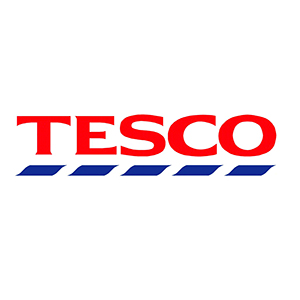

Download this case study


Read more case studies:
Implementing the Resolution Framework
Introduction
London Ambulance Service is the busiest emergency ambulance service in the UK with over 5,700 staff across London; the services they provide are central to emergency response across the UK.
While we’ve worked with many healthcare organisations to use the Resolution Framework to reframe the way they manage workplace conflicts, complaints and concerns, London Ambulance Service are breaking ground by becoming the first organisation of its kind to use the framework to also manage conduct-related issues.
Targetting Issues
Like all NHS organisations, LAS had a tumultuous 2020 at the frontline of the Covid-19 pandemic. With staff under tremendous operational and personal pressure, cracks were starting to appear in workplace relationships and the number of disciplinary and grievance cases had grown substantially, to the point where the HR team was becoming overwhelmed.
Making Resolutions
TCM’S Resolution Framework, with its emphasis on resolving issues early through dialogue, rather than formal policies, was a perfect fit for LAS’s People and Culture strategy – the aim of which is to create a fair, open and inclusive organisation with an engaged and collaborative workforce. As the organisation examined the framework more closely, it became clear it could also help the service take a fairer and more compassionate approach to the way it handled conduct and performance issues.
LAS Chief Executive Garrett Emmerson gave his full endorsement for the shift to a new approach, as did the executive team. An intensive period of stakeholder engagement then followed, with unions, HR and operational managers fully involved in developing the framework template and language to meet the service’s specific needs.
Support for the move to a resolution-first approach has been widespread throughout LAS.
“Everyone in the organisation wants a quicker resolution process, and the current arrangements are so stressful for everybody that there really wasn’t a good reason why people would want to hold onto them.”
A comprehensive programme of training has been developed to support implementation of the Resolution Framework. The HR team and union representatives have had in-depth familiarisation sessions, and a cohort of resolution advocates, who will support managers and staff through the process, have also been trained.
An illustration of just how welcome the approach has been came in the shape of response to an open invitation to staff to put themselves forward to become internal mediators. More than 50 people applied – with a group of 16 initially being allocated places on the accredited Certificate in Workplace Mediation run by The TCM Group.
Going forward, there are plans for all staff to be trained on the resolution-first approach, which will become a key part of essential training for managers and eventually be developed into a mandatory e-learning programme.
“Giving our people the right education and training to use the Resolution Framework effectively is so important. Being able to equip managers with the tools to problem solve and come up with solutions which are fair, just and reasonable is going to be really key to the success of this initiative.”
A full internal communications programme was also put together to support the launch, with everything from drop-in sessions and briefing meetings through to roadshows and interviews on the London Ambulance Service Live TV channel.
Impacting Culture
An important KPI will be a reduction in overall levels of disciplinary and grievances and the time spent managing the caseload.
Moving forward, Kim Nurse believes the impact of TCM’s Resolution Framework will be felt in all corners of LAS. It has been fully embedded into key workstreams such as people and culture, diversity and inclusion, training, talent management and health and wellbeing, to ensure a joined approach.
The availability of a framework against which managers can base their decisions will also help to ensure fairness and consistency across the service, in the way it deals with everything from conduct issues to relationship breakdowns or concerns that may be bubbling under the surface.
Looking Forward
As for the future, LAS looks to continue to put people first by using a Resolution Framework approach in all facets of the business.
“The Resolution Framework will help us get to resolution in a more agile manner, but it also sets the tone for the way we want to work with colleagues in the organisation.With traditional policies, sometimes the stress of the process rather than the actual issue is an inhibitor to creating a good outcome. We need to come out of issues having both learnt and taken responsibility for our own part of the resolution process. That is a much more powerful outcome than going through a very stern, formalised process which can scar people for life.”











